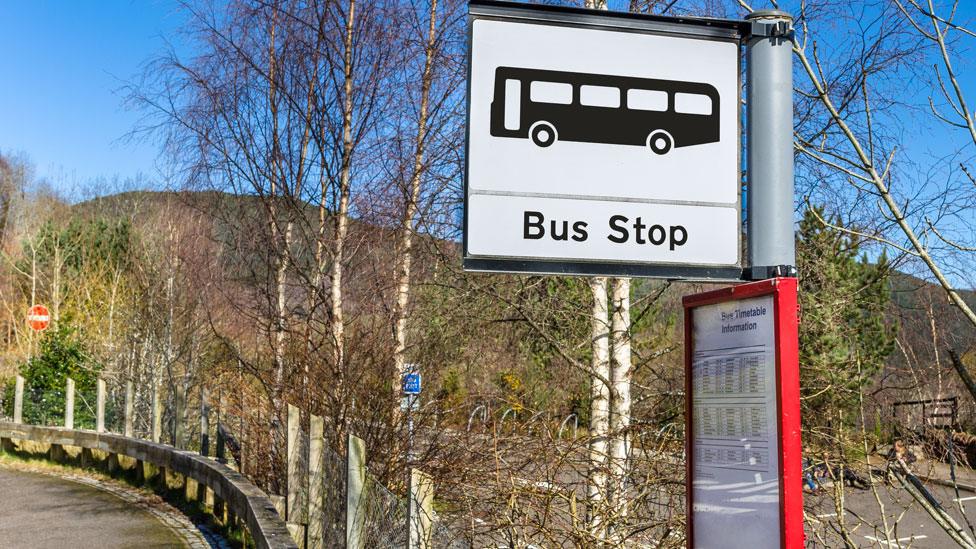Poor public transport puts rural schools out of reach
- Published

A lack of public transport is a barrier to education for rural communities
Three out of five young people in rural areas of England do not have adequate public transport to get to secondary school, according to research from Rural England.
The State of Rural Services report says lack of public transport is harming opportunities in education.
There are also concerns about gaps in access to broadband in rural areas.
Margaret Clark, of Rural England, said rural youngsters were losing out because of "poor transport services".
The report warns that young people's choices in secondary school and further education are significantly narrowed in rural areas by patchy and expensive public transport.
Lack of options
Most young people in these countryside areas cannot get to school in a "reasonable travel time" by public transport or walking, which means their choices depend on where they can be driven by their parents.
The Rural England study says there are more people with low qualifications in rural areas - but being able to improve their skills in further education is made difficult because of weak transport links.
Local authority funding for buses in rural areas has fallen by 25% in the past four years, says the report, and about half of people in smaller villages do not have access to any public transport.
It also shows that the amount spent on transport by rural students is 20% higher than in urban areas.
The report says that 17% of England's population live in a rural area - and this tends to be an older population than the national average.
But for those young people in the country there are concerns that they are being isolated from services expected elsewhere in the country.
It is harder to get apprenticeships, there are few big employers to help with work experience and a lack of broadband can be a barrier to online learning and help with homework.
David Hughes, chief Executive of the Association of Colleges, said choices about education should be based on what was the best option and "not just making the decision based on the cheapest bus or train fare".
Kirstie Donnelly, managing director of City & Guilds, said the study raised "significant concerns" about access to education outside of towns and cities.
"The sad reality is that we are seeing signs of a reduction in learning opportunities for many young people across the country, with access to post-16 education under threat from college mergers or closures resulting from the ongoing area-based reviews.
"As this report shows, learners in rural areas already face a number of obstacles in accessing training or apprenticeships.
"It's crucial that policymakers consider how they can help people overcome them, rather than creating new barriers."
A government spokeswoman said that the responsibility for school and college transport rested with councils.
"We know that buses play a key role in helping children to get to school, especially in rural areas. We provide around £250m to support services in England every year, which councils can use to decide specific bus routes.
"Our Bus Services Bill will also give councils power to work in partnership with local transport companies to improve service to people in the area," said a government spokeswoman.
Join the conversation - find us on Facebook, external